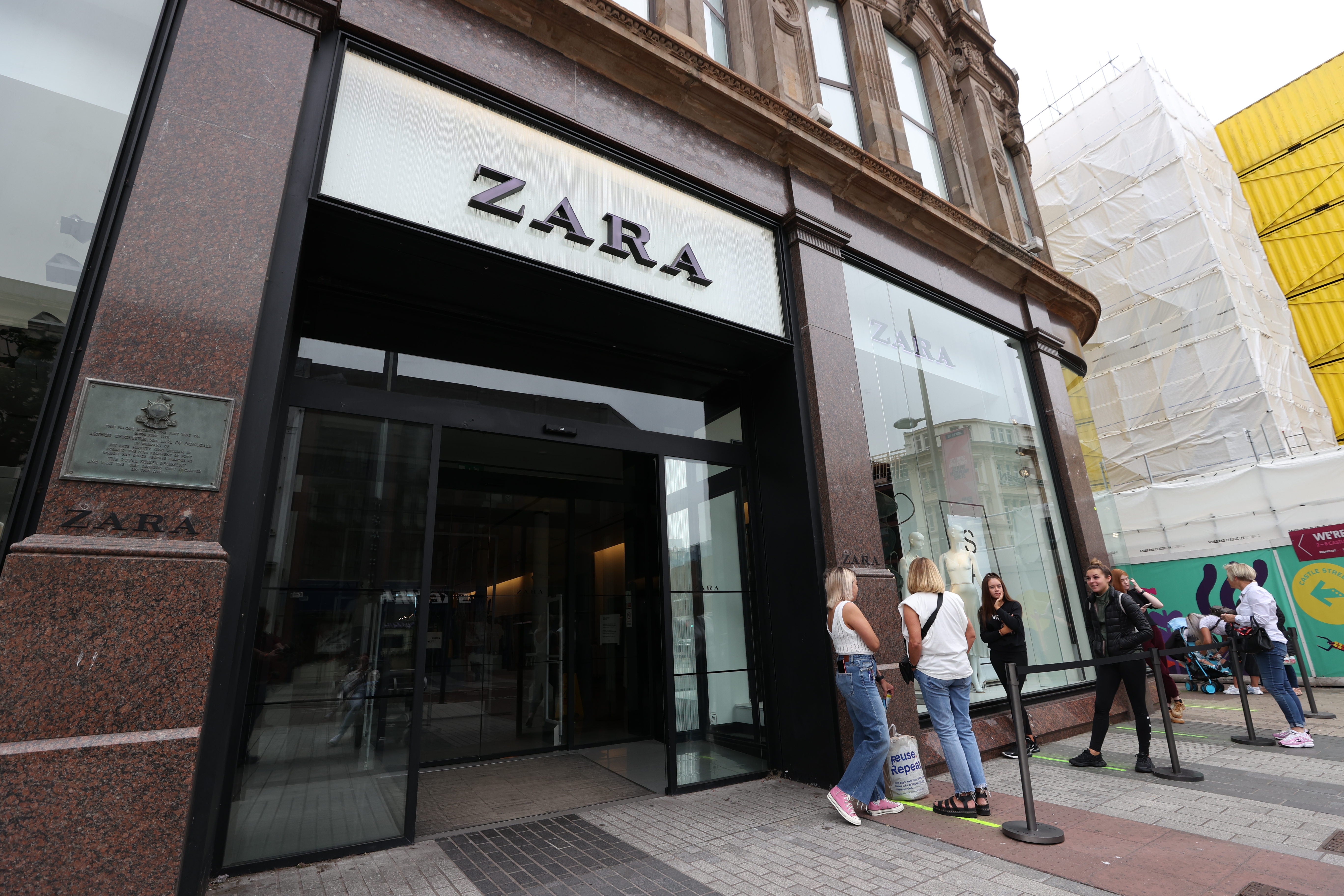Omicron cuts into sales momentum at Zara owner Inditex
The group said the impact was roughly 400 million euros (£336.7 million) over the three months to the end of January.

The owner of fashion chain Zara has reported a surge in sales for the past year although its final quarter was weighed down by the rapid spread of the Omicron coronavirus variant.
Spanish retail giant Inditex, which also owns the Bershka and Pull & Bear brands, reported that revenues jumped 35.8% to 27.72 billion euros (£23.3 billion) for the year to January 31, compared with the previous year.
The group highlighted that online sales continued to boom, rising to more than a quarter of total trade, despite the reopening of stores.
Nevertheless, Inditex also told shareholders that sales momentum started to wane at the start of the fourth quarter of the financial year as Covid cases grew due to the rapid spread of Omicron.
It said this “weighed on sales following the reintroduction of restrictions in most markets and lockdowns in Austria, Netherlands, Germany, Japan, China and the Philippines”.
The group said this hit store sales, with an impact of roughly 400 million euros (£336.7 million) over the three months to the end of January.
This set of results demonstrates the incredible ability to adapt to any circumstances that characterises all the people who work here, borne from their commitment and talent
However, sales momentum kicked on again after the easing of restrictions in many territories at the end of January.
Store and online sales between February 1 and March 13 have increased by 33% year-on-year, while they are 21% above pre-Covid figures from 2019, the company said.
Nevertheless, the impact of the conflict in Ukraine has cast a cloud on the company’s outlook for the current year.
Shares in the firm tumbled earlier this month after it closed its 502 shops in Russia, as well as online sales in the country, following the invasion of Ukraine and the imposition of sanctions.
The company highlighted that Russia and Ukraine accounted for 5% of its sales growth in the period from the start of February.
Inditex executive chairman Pablo Isla said: “After two years of pandemic, this set of results demonstrates the incredible ability to adapt to any circumstances that characterises all the people who work here, borne from their commitment and talent.”
The group’s chief executive, Oscar Garcia Maceiras, singled out “the leadership demonstrated by the company on the digital transformation front in recent years”.
He added: “This places us in an unrivalled position to offer an exceptional level of engagement with our quality and sustainable fashion.”
Bookmark popover
Removed from bookmarks